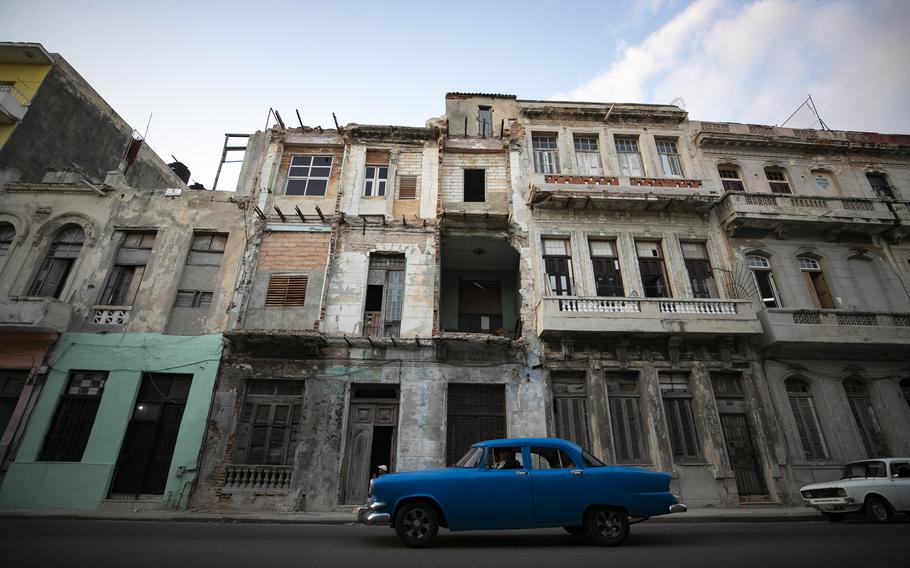
Dilapidated buildings in Havana. (Yander Zamora/Bloomberg)
Cuba is banning its nascent class of entrepreneurs from using US bank accounts in a bid to keep dollars inside the island amid its worst economic crisis since the Soviet Union’s collapse.
Havana’s decision last week that all payments to international suppliers must be made through local banks was the latest in a series of measures against businesses that the communist regime blames for the nation’s rampant inflation, which hit 31% last year.
The crackdown on the private sector is unlikely to be a solution to food and fuel shortages that are feeding discontent among Cubans and have sparked rare protests against the government. Since 2021, the island has lost 10% of its population. Some are even traveling to Russia to join its war on Ukraine, lured by generous payments and the promise of foreign citizenship.
President Miguel Diaz-Canel has denied the existence of a “witch hunt” against the private sector. In a speech last week, he said too many small businesses are simply importing goods and selling them at a markup, “which resolves the short-term needs of the population but does nothing for the sustainable development of the country.”
But the ban on US bank accounts — announced just weeks after the Biden administration officially opened the banking system to Cubans — strikes at the heart of the island’s entrepreneurs, said Oniel Diaz, who runs Auge, a business consulting company that has worked with more than 300 clients. Unable to get hard currency in the local market, many rely on offshore accounts to do business.
“The regulations are not out yet, no one knows how this will work, but we’re already seeing people limit their imports — particularly of food,” he said.
The entrepreneurial class is on edge, according to Aldo Alvarez, the founder of Mercatoria, an import, distribution and food production company on the island.
“The perception of some people is that the government wants to drive us out of business, others think it simply wants more control” amid widespread tax evasion, said Alvarez, who is also a member of the US-based Cuba Study Group. “We’re facing an incredibly difficult economy, with a legal framework that’s always changing.”
The rules are also part of a broader effort to retain dollars. Prime Minister Manuel Marrero announced last week that the government will temporarily start accepting foreign currency at hotels and other tourist destinations.
With the economic crisis grinding on and the political uncertainties in the hemisphere growing with the possibility of Donald Trump’s return to the White House, the Cuban government is likely looking for ways to “mop up as much cash as it can before things get really bad,” said Michael Bustamante, a history professor at the University of Miami.
Cuba’s economy saw a brief window of growth and optimism when Barack Obama normalized US relations in 2015, but the island fell back into despair when Trump aggressively tightened sanctions during his first presidency. Then COVID decimated the linchpin tourism industry, starving the government of foreign currency.
With discontent and government protests growing, the nation in 2021 began allowing the formation of small and medium-sized businesses. Since then, more than 11,000 companies have been established, even as authorities have already shut down hundreds of them for rule violations.
Mark Entwistle, a former Canadian ambassador to the island and a fellow at the Munk School for Global Affairs and Public Policy at the University of Toronto, said that, despite the crackdown, the government needs the new businesses to keep the economy afloat.
“The private sector is here to stay in Cuba, broadly supported by the government,” he said by email. “Of course, the devil is always in the details.”